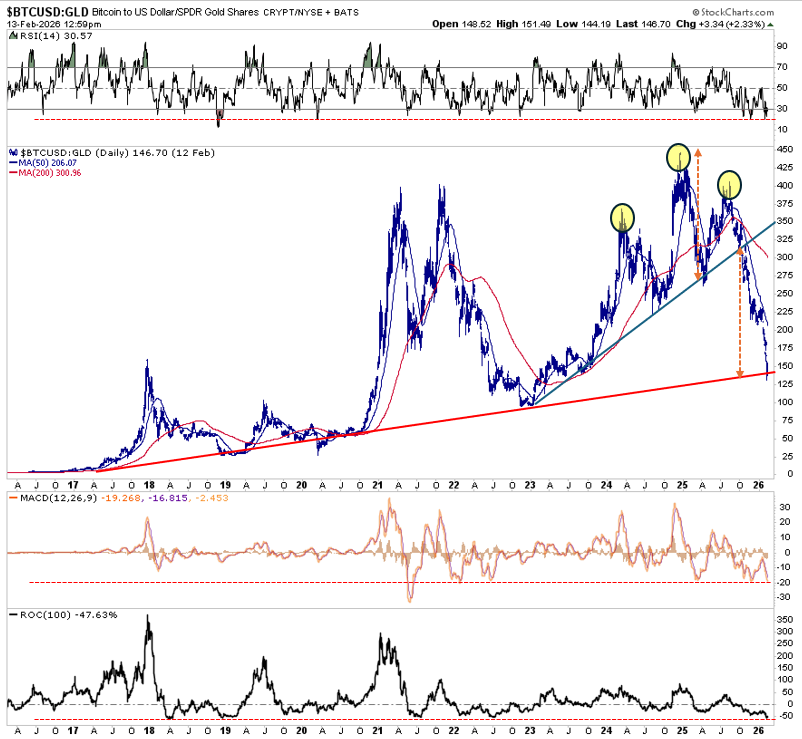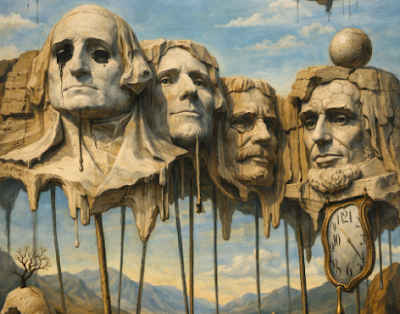The Failure of American Conservatism and the Road Not Taken
By Claes G. Ryn
Republic Book Publishers, 2023; 468 pp.
Claes Ryn, a leading conservative intellectual who taught politics for many years at the Catholic University of America, is by no means a libertarian, but readers of The Misesian can learn much from this book. I’d like to discuss two topics: first, the criticism of Harry Jaffa and his mentor, Leo Strauss; and second, the full-scale assault on the Wilsonian and neoconservative view that America is the “hope of the world,” and, as such, entitled to exercise global hegemony.
Before addressing these topics, though, it is essential to say something about Ryn’s philosophical ideas. A key theme of the book is that conservatives, under the sway of William Buckley Jr.’s National Review, have unduly neglected philosophical foundations in their avidity to win political influence and power. A proper attention to these foundations, Ryn maintains, shows that reason should not be regarded as separate from the particulars of history:
“I have tried in my philosophical work to integrate the study of seemingly different but closely related aspects of life and to ascertain their roles and importance within the whole of human life. The result has been called ‘value-centered historicism.’ It encompasses ethics, aesthetics and epistemology and shows the intimate connections between goodness, beauty, and truth and their opposites. According to this philosophy, the higher values of human existence are apprehended and attained through a special interaction of will, imagination, and reason in which moral character is primary and indispensable. . . . These values actually become known to human beings in experiential particulars—a notion that seems paradoxical to thinkers who are used to placing what is ultimately normative beyond what is near and concrete and used to regarding the universal as empty of concrete particulars.”
If this is correct, then it’s a mistake for philosophers to neglect people’s historical traditions and ways of living when they formulate principles of morality. I would add that it’s a mistake to do this even if you don’t accept value-centered historicism. But Leo Strauss and his student Harry Jaffa do neglect historical tradition. According to Strauss, as Ryn reads him, the philosopher operates in a realm detached from the political community. Ryn says that Strauss, in contrast to Edmund Burke, believes that “what is ultimately normative in human affairs can be discerned only by abstract rationality, while Burke’s defense of the historical consciousness amounts to relativism or nihilism. This is historicism and must be flatly rejected. Strauss’s view of Burke and historical consciousness betrays a pronounced reductionism. Strauss never contemplates that historical thinking might have a form entirely different from what he rejects. . . . But, surely, the experience and achievements of the human race are a rich source of guidance for intellectually limited and otherwise flawed individuals.”
Strauss, Ryn alleges, “championed what he called ‘natural right,’ which he saw as sharply opposed to tradition. He called the latter ‘the ancestral’ or ‘convention.’”
Understanding Ryn’s criticism of Strauss gives us the necessary background to grasp Ryn’s assault on Harry Jaffa and the neoconservatives. These misguided thinkers neglect the way in which America’s limited constitutional government was based on the rights of Englishmen established through tradition. Instead, they see America as the embodiment of abstract principles that must be imposed on the rest of the world, regardless of other peoples’ own traditions. A limited government cannot achieve this monumental task; hence it must be cast aside in favor of a government strong enough to do the job. Jaffa’s view transforms the American regime into a political system akin to that of the French Jacobins, who were eager to impose their revolutionary principles on their European conquests. (Actually, the proponents of spreading the French revolutionary principles were the Girondins rather than the Jacobins, but this inaccuracy leaves Ryn’s basic point intact.)
Jaffa’s commitment to revolution and disdain for tradition is evident, Ryn alleges:
“The American Founding, Jaffa asserts, ‘represented the most radical break with tradition . . . that the world had seen . . . The Founders understood themselves to be revolutionaries, and to celebrate the American Founding is therefore to celebrate revolution. . . . The revolution was somewhat mild, Jaffa concedes, but belongs with subsequent revolutions in France, Russia, China, Cuba, or elsewhere.’ . . . Far from being conservative of an ancient inheritance, Jaffa wants to be rid of America’s actual past” (emphasis in original).
Holding Jaffa’s view of the American founding doesn’t by itself commit you to spreading our revolutionary principles far and wide, but the danger is there. There is a temptation to regard America as a force for good, unsullied by the sordid strivings for power of other nations. Woodrow Wilson, for one, succumbed to this temptation, and Ryn cites in this connection one of his favorite thinkers, the literary critic and philosopher Irving Babbitt, who said:
“We are willing to admit that all other nations are self-seeking, but as for ourselves, we hold that we act only on the most disinterested motives. We have not yet set up, like revolutionary France, as the Christ of Nations, but during the late war we liked to look on ourselves as at least the Sir Galahad of Nations. . . . In 1914, even before the outbreak of the European War, Wilson stated in a Fourth of July address that America’s role was to ‘serve the rights of humanity.’ The flag of the United States, he declared, is the flag, not only of America, but of humanity.’”
The neoconservatives are prime examples of what happens when the temptation, far from being resisted, is eagerly embraced. As they saw matters, America was the “indispensable nation” that ought to control the world. Unnecessary, very costly, and counterproductive wars with Afghanistan and Iraq were the result:
“A few years ago, David Frum and Richard Perle [two leading neoconservatives] provided an allpurpose justification for unlimited power: putting an ‘end to evil’—the title of their co-authored book. Now there is a noble and ambitious goal! Power beyond the dreams of avarice would be needed to realize it. That rooting out evil might be an endless task only increases its appeal to a ravenous will to power. . . .
“Jacobinism and Marxism were openly revolutionary. They were the ideologies of outgroups challenging the existing elites. What this writer has called neo-Jacobinism is the ideology of people on the inside, members of America’s elite, who wish to make the military and other military might of the United States a more pliant tool and who are attempting a creeping coup d’état from within. According to their ideology, America is called by history to create a better world based on universal principles. Virtuous American power must be unleashed.”
In the foregoing, I have offered little in the way of criticism of Ryn’s ideas. From a Rothbardian point of view, what he says is not altogether acceptable; and in particular, there is more to be said in favor of natural rights than he allows. But I think it more important to present the viewpoint of an interesting thinker and leave readers to judge for themselves. The support of an ally who concurs that “America goes not abroad in search of monsters to destroy” must be welcomed, especially when the ally is as insightful as Claes Ryn.
Full story here Are you the author? Previous post See more for Next postTags: Featured,newsletter





































